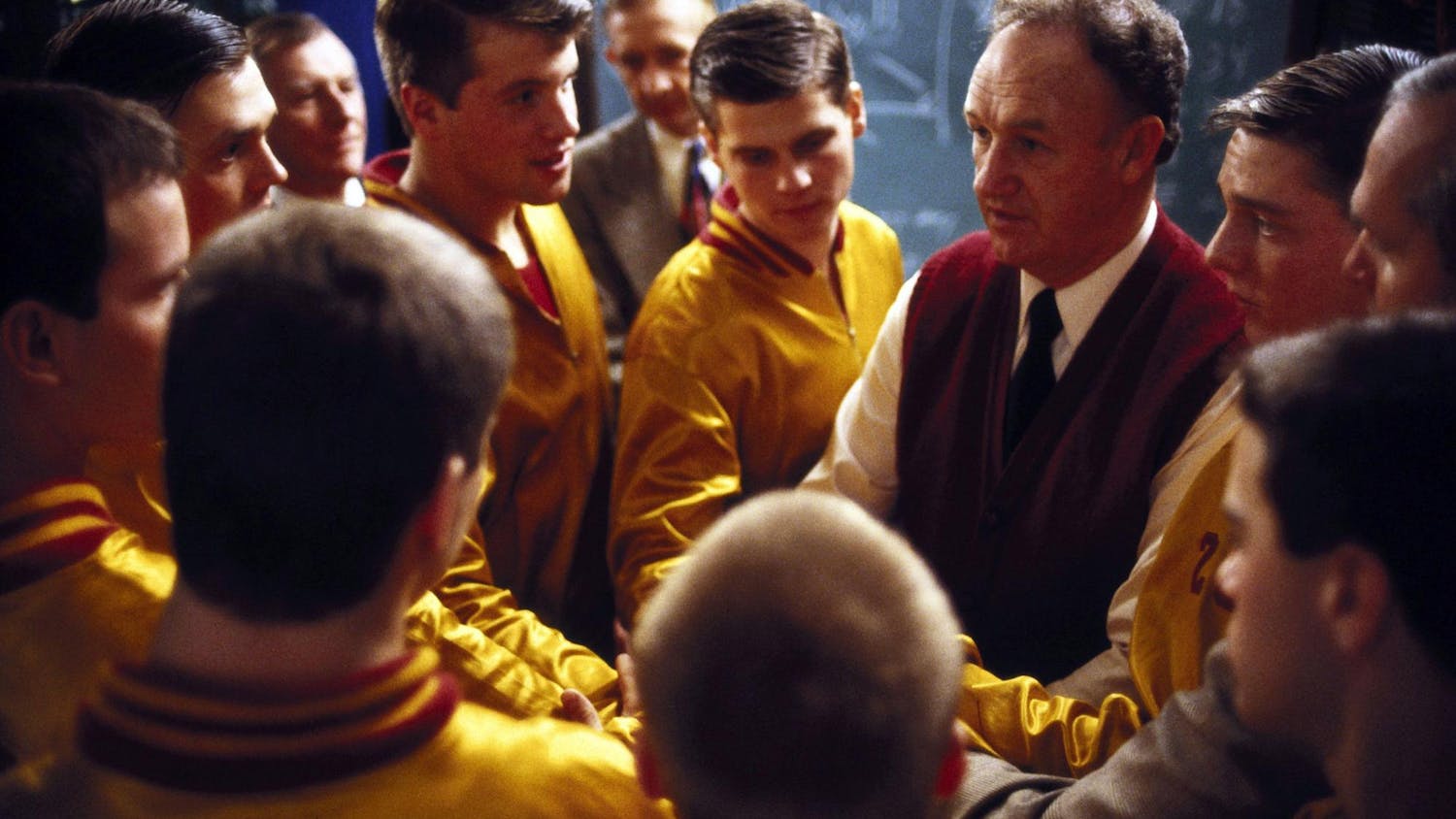Bloomington dream hop musician Emily Plazek frequently uses ocean metaphors in her music.
The deep waves represent the journey through human consciousness to self-realization, and at the forefront of her consciousness is trauma, depression, an eating disorder and other baggage that often makes her feel like she’s drowning.
She finds ways to float, though. Songwriting is one of the ways, possibly the biggest. Maybe this is why her studio, a room attached to the master bathroom of her house, is scattered with nautical decorations. A large, copper-colored ship hangs on the wall to the right of the entrance, a clock shaped like a helm hangs on the opposite wall and fisherman figurines are scattered throughout the room.
It’s in this room where Plazek, who goes by the stage name Millaze, creates her music. The 29-year-old local rolls her laptop around on a cart back and forth from the piano that dominates the room’s center to the dark closet where she records her vocals. Hermie, Plazek’s hermit crab, watches it all from his tank underneath the window looking out at a garden in the yard shared between her neighboring apartments.
Plazek is recording “Scream/529/Spine,” a song that will appear on her upcoming album, “Front Matter.” She transfers music from her brain to her piano to Spotify so quickly that she said this album won’t even be the next she’ll release. While she records this one, she’s also working on rolling out her fifth album of 2020, “A Note on the Author,” which is set to release this winter.
Her recording style is intense. She dives right in, energetic piano rhythms flowing from her fingertips while she belts out pointed, percussive lyrics. Right now, she’s fixated on perfecting one repeating line:
“And I could, and I could, and I could,” she sings, with emotion jerking her head on each “could.”
Plazek said the song came to her in the middle of the night. She woke up suddenly at 5:29 a.m. with the melody playing in her head, so she sat at the window with Hermie and dumped all the lyrics into a notebook. She was experiencing a wave of depression, a “depression attack” as she calls it, and soothed herself the best way she knows how — by writing a song.
“And I could scream, scream, scream,” she wrote.
Plazek knows herself well enough to understand she can’t control when she has a depression attack. However, she can turn them into moments of artistic productivity. She was feeling unhappy when she woke up at 5:29 a.m. that night, but at least she got a song out of it, she said.
“All of my songs have a purpose for healing another chunk of me,” Plazek said.
Though songwriting helps, it can’t fully cure her depression or the eating disorder she’s been battling since fourth grade. The COVID-19 pandemic has added yet another stressor by taking away opportunities for live performance and confining her to solitude.
“It’s like hormone city over here,” Plazek said. “I’ve had some days where it’s been so bad that when I wake up, it’s like the gravity of the world is on my chest.”
While it’s been harder, Plazek said she has made some breakthroughs. For instance, she realized through therapy and her own research she’s primarily anorexic rather than just orthorexic, as she’d thought for years. Now that she knows exactly what she's dealing with, she said she can finally effectively address it.
Plazek said she’s focusing on taking care of her body by letting herself have treats and fighting the impulse to work out too excessively, a common sign of anorexia.
“When you learn the name of the beast, then you can finally fight it,” she said.
Plazek fights these "beasts," as she refers to them, not with swords, but with analysis. On top of more than five years of therapy, she’s always trying to understand them through meditation, self-reflection, problem solving and of course, songwriting. She knows she'll be struggling with these issues her whole life, but she said she's now in a great place.
Though much of this is inwardly focused, lately Plazek said she has found a lot of meaning in using what she learns to help others. She feels that if she can stay present through all her mental health struggles, she won't be consumed by them. And the more she practices this, the more she can teach others to do the same.
“It’s like when two lights get brighter because they’re helping each other,” Plazek said. “The better I get at it, the better I’ll be at helping other people have better lives.”
The beauty of Plazek's music, best friend Branden Karnell said, is that it also has the power to do just that — help others. Karnell, who met Plazek in college and was a "brides-man" in her wedding party last year, said her songs reach others who go through the same things.
"She's one of those people that just kind of exudes love," Karnell said. "A lot of that comes through in her songs. She's coming from a place of 'I'm putting this out into the world so that I can connect with someone who's going through something.'"
While helping others has given her much purpose externally, Plazek said her internal purpose will always be music. It’s why she works so diligently at spinning out albums and it’s why she founded MIC: Music Industry Connected, a business dedicated to helping fellow musicians grow their careers. It’s why she always goes back to songwriting when she wants to make sense of herself and the chaos around her.
“This year has been a game changer for me,” she said. “I’m glad that I’m facing the beast now that I know its name.”






